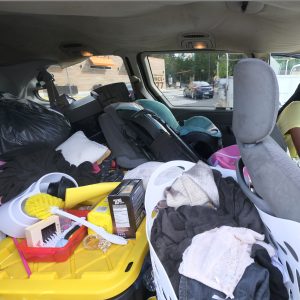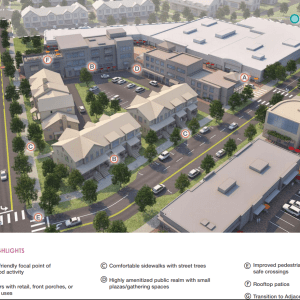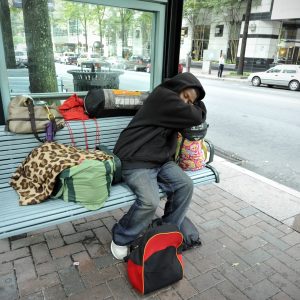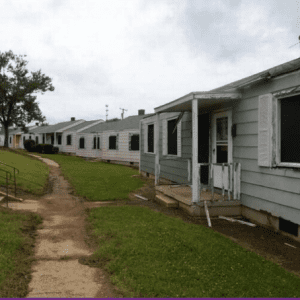Housing

New report release: Single adult homelessness integrated data
Mecklenburg County Community Support Services recently released the Single Adult Homelessness Integrated Data (SAHID) Report. This is the first community report focused specifically on single adult homelessness. The report is part of the Charlotte-Mecklenburg Housing Instability & Homelessness Report Series, which is funded by Mecklenburg County Community Support Services and completed by the UNC Charlotte […]

Housing First works: Report sheds light on program to end homelessness
In the shadow of COVID-19, it’s easy to lose sight of the strides Charlotte-Mecklenburg has made to address chronic homelessness. Housing First Charlotte-Mecklenburg (HFCM) was launched in 2015 to end chronic homelessness in Charlotte-Mecklenburg by scaling housing first, particularly by expanding the housing first permanent supportive housing model. Through HFCM and the continued work of […]

A glimpse at Charlotte’s future from a piece of the past
It probably wasn’t the setting Charlotte planners would have picked to unveil their vision for the future: A parking lot off Independence Boulevard, acres of scarred asphalt surrounded by a tangle of some of the city’s least pedestrian-friendly streets. But in the wake of the covid-19 pandemic, an in-person event at a densely packed brewery […]

Housing First Process Evaluation: Many housed, but lessons to learn
Housing First Charlotte-Mecklenburg (HFCM) was launched in 2015 to end chronic homelessness in Charlotte-Mecklenburg by scaling housing first, particularly the housing first permanent supportive housing model. Housing first programs prioritize housing as an early step in service delivery, have low-barrier admissions policies, maximize client choice in housing and services, use a harm reduction approach to […]

Five key findings about the impact of COVID-19 on local renters and prioritizing rental assistance
COVID-19 has had an immediate and potentially lasting impact on the housing stability of low-income renters in Charlotte and the nation. Although the Centers for Disease Control and Prevention recently announced a federal eviction moratorium through the end of 2020, missed rent is not being forgiven. Renters need assistance to avoid often insurmountable back rents […]

Child and youth integrated homelessness data report: Part 3
Last week’s blog post provided an in-depth look at the key findings from The Child & Youth Homelessness Integrated Data Report, which was released on July 9. The new report integrates data from multiple sources to describe child and youth homelessness and service utilization patterns in Charlotte-Mecklenburg. The first blog post in the series covering […]

Child and youth integrated homelessness data report: Part 2
Last week’s blog post featured the release of The Child & Youth Homelessness Integrated Data Report, which integrates data from multiple sources to describe child and youth homelessness and service utilization patterns in Charlotte-Mecklenburg. The blog post provided context about the the report, including how integrated data can help communities to understand and address complex […]

Child and youth integrated homelessness data report: Part 1
Housing instability and homelessness has negative short-term and long-term impacts on children and youth experiencing homelessness. Immediate effects include increased absences from school; lower scores on reading and math End of Grade tests; and greater risks of dropping out of high school. As children and youth age into adults, long-term effects can also impact mental […]

Residents wait to see if they can stay in fast-changing South End
Debbie Williams grew up in Charlotte’s Brookhill Village, a neighborhood of one-story duplex and triplex apartments built for black families in the 1950s. She has watched while its owners let the buildings deteriorate as luxury apartments began rising nearby. Two decades ago, she moved away. But her mother and sister remained in the low-rent housing […]

COVID-19 exposes the impact of the racial wealth gap
This is the first in an ongoing series, based on a report by the Urban Institute. Read Part 2 here. The report was compiled with support from Bank of America, which partners with the Charlotte Urban Institute and the Charlotte Regional Data Trust on research that provides insight into community initiatives. By James E. Ford, […]